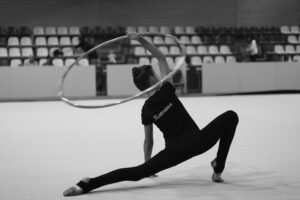In the realm of athletic performance, physical training often takes center stage. However, the intricate dance of chemicals in our brain—neurotransmitters—plays a pivotal role in determining our performance, focus, and recovery. Understanding these chemical messengers can provide athletes with insights into optimizing their potential both on and off the field.
What Are Neurotransmitters?
Neurotransmitters are chemical compounds that transmit signals across synapses, connecting neurons to one another and to muscles. These signals regulate a wide array of bodily functions, including mood, focus, energy levels, and motor coordination—all critical factors in sports performance. The major neurotransmitters influencing athletic performance include dopamine, serotonin, acetylcholine, gamma-aminobutyric acid (GABA), and norepinephrine.
Dopamine: The Drive to Succeed
Dopamine is often associated with motivation and reward. High levels of dopamine are linked to enhanced focus, drive, and learning capacity. In sports, this translates to improved decision-making, quicker reaction times, and a stronger desire to push through challenges. According to a study in the Journal of Neuroscience, dopamine modulation can influence motor skill learning and execution, making it essential for athletes honing their techniques (Surmeier et al., 2014).
To naturally boost dopamine levels, athletes can engage in activities like goal setting, visualization, and consuming a diet rich in tyrosine-containing foods such as eggs, fish, and almonds.
Serotonin: The Mood Stabilizer
Serotonin is crucial for mood regulation, emotional stability, and sleep quality. For endurance athletes, serotonin can help manage feelings of fatigue and promote a positive mindset during prolonged exertion. A review in Sports Medicine highlighted that serotonin levels affect perceived effort and endurance capacity, particularly during long-duration events (Meeusen et al., 2006).
To optimize serotonin levels, regular exposure to sunlight, adequate sleep, and a diet rich in tryptophan-containing foods—such as turkey, tofu, and bananas—can be beneficial.
Acetylcholine: The Coordination Catalyst
Acetylcholine is key to motor control and neuromuscular communication. This neurotransmitter facilitates the contraction of muscles and supports cognitive functions like memory and focus. A study in the Journal of Physiologydemonstrated that acetylcholine’s role in neuromuscular transmission is indispensable for fine motor skills and explosive power—attributes essential for sports like tennis, basketball, and gymnastics (Swayne et al., 2009).
Choline-rich foods such as eggs, beef liver, and broccoli can help maintain optimal acetylcholine levels.
GABA: The Relaxation Agent
Gamma-aminobutyric acid (GABA) is the brain’s primary inhibitory neurotransmitter, promoting relaxation and reducing anxiety. For athletes, GABA aids in calming pre-competition jitters and improving sleep quality, both of which are crucial for peak performance. Research in Frontiers in Physiology suggests that increased GABA activity is associated with reduced stress and enhanced focus during competition (Strohle, 2009).
Practices like mindfulness meditation, yoga, and consuming fermented foods can naturally increase GABA levels.
Norepinephrine: The Alertness Booster
Norepinephrine acts as both a hormone and a neurotransmitter, heightening alertness and focus while preparing the body for physical exertion. Often referred to as the “fight-or-flight” chemical, norepinephrine is crucial for maintaining energy levels during intense training and competition. According to a study published in Neuroscience Letters, norepinephrine enhances cognitive performance under pressure, making it vital for high-stakes situations (Berridge & Waterhouse, 2003).
Regular exercise and adequate hydration can help sustain norepinephrine levels during prolonged activity.
Balancing Neurotransmitters for Optimal Performance
While each neurotransmitter has a specific role, their interplay determines overall athletic performance. Imbalances can lead to issues such as burnout, lack of focus, or poor recovery. Consulting with sports nutritionists or psychologists can help athletes identify potential deficiencies and tailor interventions to their unique needs.
Practical Applications for Athletes
- Monitor Nutrition: A balanced diet rich in neurotransmitter precursors can significantly impact performance. Include a variety of proteins, complex carbohydrates, and healthy fats.
- Prioritize Recovery: Quality sleep and stress management are vital for maintaining neurotransmitter balance.
- Train Smart: Incorporate mental training techniques like visualization and meditation to harness the power of dopamine and GABA.
In conclusion, neurotransmitters are unsung heroes in sports performance. By understanding and optimizing their functions, athletes can unlock new levels of focus, endurance, and resilience. As research continues to unveil the complex interactions of these chemical messengers, the potential for improving athletic performance through neuroscience grows ever more exciting.
References
- Surmeier, D. J., et al. (2014). Dopaminergic modulation of motor circuits in basal ganglia. Journal of Neuroscience, 34(47), 15178-15184.
- Meeusen, R., et al. (2006). Central fatigue: the serotonin hypothesis and beyond. Sports Medicine, 36(10), 881-909.
- Swayne, O. B., et al. (2009). Role of acetylcholine in motor control and muscle contraction. Journal of Physiology, 587(Pt 3), 489-501.
- Strohle, A. (2009). Physical activity, exercise, depression and anxiety disorders. Frontiers in Physiology, 5, 197.
- Berridge, C. W., & Waterhouse, B. D. (2003). The locus coeruleus-noradrenergic system: modulation of behavioral state and state-dependent cognitive processes. Neuroscience Letters, 15(4), 327-331.
